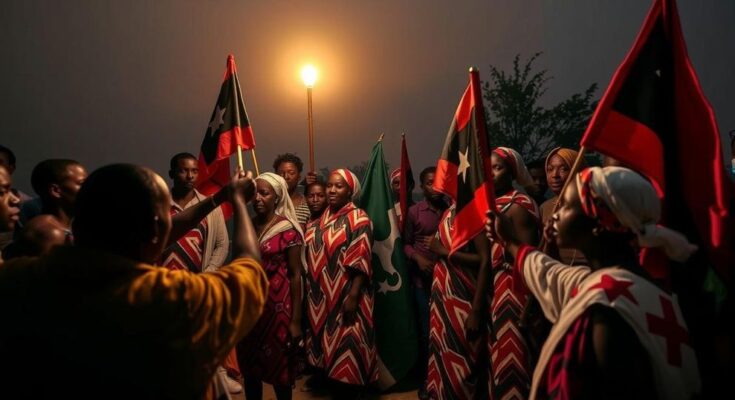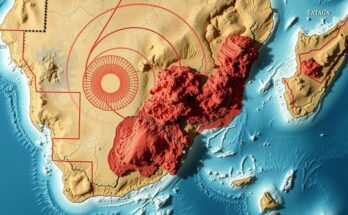Leaders of the Dinka Ngok community in Abyei are calling for self-rule amid stalled efforts for a referendum to determine the region’s future due to ongoing conflict in Sudan. They seek international support for autonomy and the recognition of their rights as stipulated in the 2005 Comprehensive Peace Agreement, as the region continues to be affected by violence and political instability.
On October 28, 2024, leaders from the Dinka Ngok community in the contested Abyei region expressed their urgent demand for self-governance, citing the ongoing conflict in Sudan that has thwarted their hopes for a referendum concerning the area’s political future. In a formal memorandum addressed to the United Nations Interim Security Force for Abyei (UNISFA), the Dinka Ngok, who are the primary residents of Abyei, called upon the international community to support their quest for autonomy during an interim period until a resolution is reached between Sudan and South Sudan regarding Abyei’s final fate. The 2005 Comprehensive Peace Agreement, which granted Abyei a special status, included provisions for a referendum that would enable the region to choose between joining Sudan or South Sudan. Unfortunately, this vote has been postponed repeatedly due to ongoing disputes over voter eligibility, particularly regarding the inclusion of the nomadic Misseriya tribe. The memorandum articulates, “It became increasingly clear that Sudan is resisting the loss of Abyei, and that South Sudan… lacks the capacity or the will to go to war with Sudan over Abyei.” Given the desperate circumstances in Sudan and South Sudan’s reluctance to act independently, the Dinka Ngok see little hope for a timely resolution. They have issued dire warnings that as Abyei has already suffered from years of violence, it is at risk of becoming yet another site of conflict. Their memorandum further underscores the precarious situation of statelessness faced by Abyei residents, who currently lack the fundamental protections afforded by a recognized national authority. It reiterates their inherent right to self-governance, as stipulated in the original peace agreement. The 2005 agreement allowed the residents of Abyei to hold dual citizenship in both Sudan and South Sudan; however, following South Sudan’s secession and subsequent shifts in administrative policies, this arrangement has become null and void. Therefore, Dinka Ngok leaders now advocate for the acknowledgment of their right to self-governance and the restoration of dual citizenship to help alleviate the existing impasse and foster peaceful relations with both nations.
The crisis in Abyei is rooted in its complex political landscape characterized by longstanding tensions between Sudan and South Sudan. The Comprehensive Peace Agreement of 2005 aimed to resolve various disputes, including the question of Abyei’s status. The agreement called for a referendum to be held to determine the region’s future. Unfortunately, the vote has been repeatedly delayed primarily due to disagreements over which groups are eligible to participate in the referendum, particularly concerning the Misseriya tribe, who are traditionally nomadic and cross the borders frequently. This electoral standoff has exacerbated local tensions and contributed to a volatile security environment in the region, where the Dinka Ngok community has faced multiple challenges, including violence and lack of political representation.
In summary, the Dinka Ngok leaders of Abyei are advocating fiercely for self-governance in light of the ongoing conflict in Sudan that has postponed a long-awaited referendum to determine the region’s fate. The situation for Abyei remains precarious, with residents experiencing statelessness and ongoing violence. The acknowledgment of their rights as outlined in the 2005 Comprehensive Peace Agreement, including dual citizenship, is deemed crucial for maintaining peace and resolving the current deadlock between Sudan and South Sudan.
Original Source: sudantribune.com




